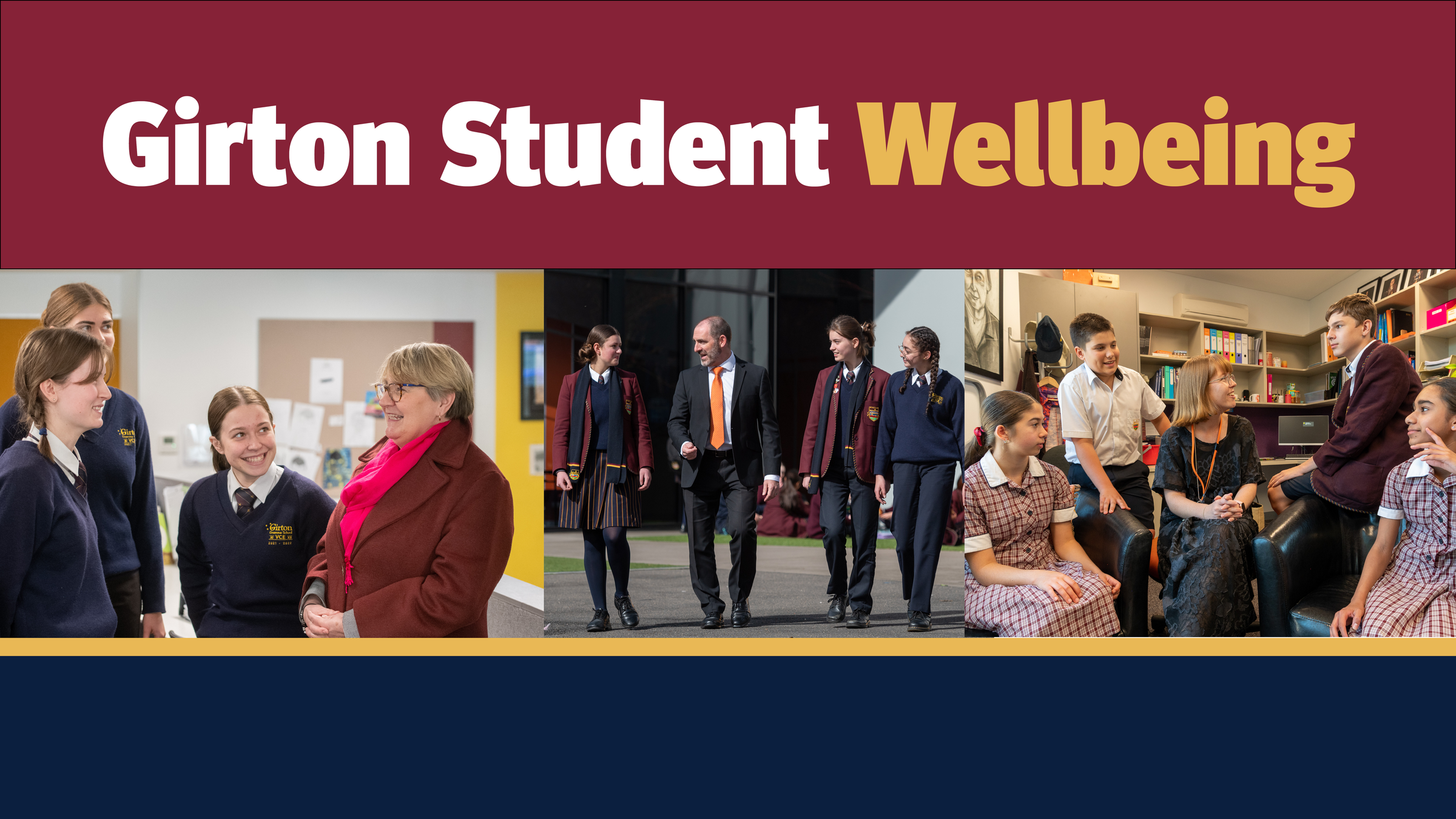Girton Student Wellbeing

Whooping Cough
Whooping cough (also known as pertussis) cases are continuing to increase across Victoria, particularly among school-aged children. Whooping cough is a highly contagious respiratory infection, mostly spread through coughing or sneezing. Symptoms include:
- blocked or runny nose
- sneezing
- tiredness
- mild fever
- severe bouts of coughing, often followed by a ‘whooping’ sound on breathing.
We kindly ask that you monitor your child for the above symptoms and, if present, keep them at home until you have consulted a medical practitioner. Please note that individuals are contagious from the onset of initial symptoms. While vaccinated individuals can still contract whooping cough, their symptoms are often milder, and they may not experience the classic 'whoop' sound. Students diagnosed with whooping cough must be excluded from school in accordance with the Department of Health’s School Exclusion table.
Vaccination is the best way to reduce the risk of whooping cough. The Department of Health recommends staff and students stay up to date with their vaccinations, including booster doses. A free booster dose of the pertussis vaccine is covered under the National Immunisation Program for students aged 12 to 13.
See the Better Health website for information about whooping cough symptoms, prevention and Victorian eligibility for free booster immunisations
Thunderstorm Asthma
As we enter the grass pollen season (which runs between 1 October and 31 December), we expect to see an increase in asthma and hay fever symptoms, and a heightened risk of epidemic thunderstorm asthma events.
People with current, past or undiagnosed asthma; seasonal hay fever; or grass pollen allergies are at an increased risk of thunderstorm asthma. However, anyone can be affected, even if they don’t have a history of asthma. We recommend taking the following steps to help manage the risk:
- Asthma first aid: Refresh your knowledge of asthma first aid so you understand the symptoms to look out for and how to respond. All Girton staff have completed a dedicated asthma first aid training course via Asthma Australia.
- Management plans: If you or your child has asthma or hay fever, make sure you have an action plan in place with your GP, and reliever medication available to use as directed. For students, their medical practitioner will need to complete an Asthma Action Plan or an ASCIA Treatment Plan for Allergic Rhinitis (Hay Fever) that is lodged with the school and updated as necessary, and they should have reliever medication on hand or lodged at Reception.
- Risk forecasts: Monitor the epidemic thunderstorm asthma risk forecast at VicEmergency. For more information, see the Department of Health website.
- High-risk periods: Those with a heightened risk should avoid being outdoors on days with a high risk forecast, particularly before and during storms. On days with a high or extreme pollen count, susceptible students will be advised to remain indoors with doors and windows closed until the storm front has passed.
- Seek medical advice: People experiencing asthma symptoms, even if for the first time, should seek medical advice as soon as possible. An asthma flare-up can vary in severity and can be life-threatening. If there are signs a person’s condition is deteriorating, urgent care should be sought by calling Triple Zero (000).
More information on thunderstorm asthma and pollen forecasts can be accessed on the Asthma Australia website.
Happy Families: The Screen Smart Series
Online Event | Live on 29 October, 7pm
Unplug Childhood: A presentation for parents of primary school-aged children
In today's digital age, our children face unprecedented challenges from social media and digital devices. Social media companies have come under scrutiny for their failure to protect children, despite knowing the harm their platforms can cause. Join us as we explore the urgent need to address these issues head-on.
Tweens, Teens & Screens: Balancing protection and progress
No conversation about 'kids these days' has created more confusion and contention than the screen time discussion. How much is okay? How old should they be before they have a phone? Are games making our kids violent? Join Dr Justin Coulson, one of the nation's leading parenting experts, as he unpacks, step by step, the specific conclusions we can draw about our digital kids.
You can access resources from Happy Families using the credentials below:
Password: happyggs

